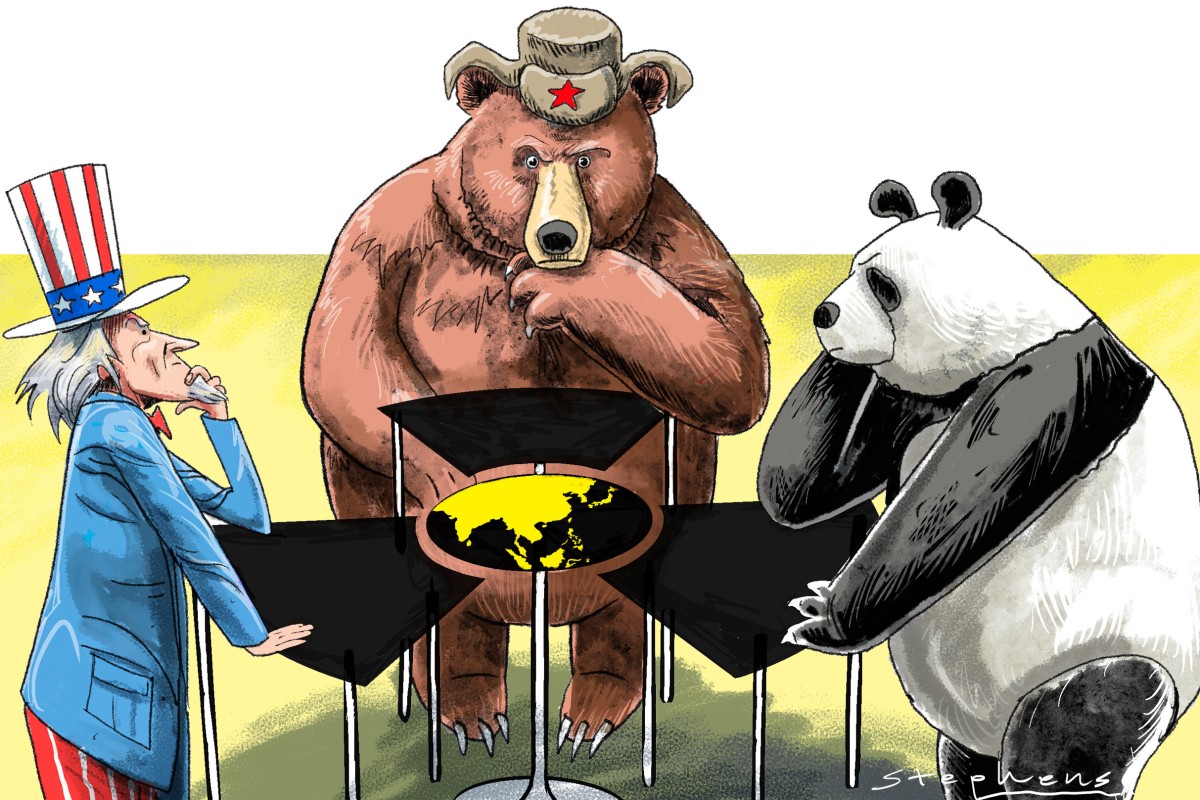The Effect of Ebb and Flow in US-China Power on Taiwan
The most dangerous time for Taiwan will be the beginning of next year. Because Taiwan is unwilling to increase its defense budget or pay the U.S. for protection, if Trump wins, he might turn to China and make a deal. If Harris wins, the U.S. might experience civil unrest, making it hard for Harris to respond to international crises. For China, it would be the perfect opportunity to pressure Taiwan.
The Taiwanese people are not only apathetic about China, but they are indifferent to the rest of the world, even though Chinese Communist Party air forces have have increased efforts to blockade Taiwan, and the U.S. wants Taiwan to prepare for all out. However, Taiwan has been excluded from many international alliances, so it is now like a frog sitting in water starting to boil.
The Taiwanese only feel something when the situation is very serious. People boycotted Evergreen Group hotels in China, and the hotel chain was forced to agree with the “1992 consensus” and oppose Taiwan independence. Chinese companies are actively spreading across the globe, pressuring the supply chains of Taiwanese companies. China and the European Union set global carbon emission standards, and the impact of carbon taxes has been spectacularly significant. Even if they are far from China, Taiwanese businesspeople still must face China out in the world.
Both American political parties already agree on avoiding war. Eventually both the war between Russia and Ukraine and Israel and Hamas will enter negotiations. The situation in the Taiwan Strait is no different. Very possibly, there will be no war, and the U.S. and China will directly make a trade. After all, there is early precedent for the U.S. selling out Taiwan. During the Vietnam War, the U.S. wanted to withdraw troops and negotiated with China. China helped the U.S. end the Vietnam War, and the U.S. agreed to shift its diplomatic recognition from Taipei to Beijing. Big countries only look out for their own interests, while small countries are often sacrificed.
Meanwhile, China is going all out to narrow the gap with the U.S. From electric vehicles, smartphones and airplanes to the Olympics, a war fought without gunpowder is accelerating a reorganization of global territories. While Huawei’s new generation of chips is no less powerful than NVIDIA’s, Amazon is trying to win over Chinese sellers to deal with the impact of e-commerce’s low prices. The recent videogame “Black Myth: Wukong” has been a big seller, showing that China already has world-class soft power.
America’s boycott of China has conversely pushed China to accelerate development of autonomous technologies and create its own ecosystem represented by “new quality productivity.” Because China’s market is huge, it can survive without a global market.
Facing a depressed domestic demand, China is making every effort to boost its economy through exports, switching from exporting low-cost goods to technological products out across the globe. Due to fierce competition, prices are extremely competitive. Although many countries are using tariffs to block these goods, the reality is that an enemy who cannot be killed will become stronger. “Made in China” has changed to “Made in China’s World,” which affects the entire global economy.
Take the automobile industry, for example. Global sales fell last year except for BYDs,* whose sales increased 40%, ranking seventh globally. In the second quarter, its overseas sales tripled. And while the U.S. may lead in the battle of smart technology, China has shut out competition in green energy and low-carbon technologies. Wars in the future will not be limited to militaries; the battlefield will be worldwide, which will hurt a diplomatically isolated Taiwan.
The U.S. relies on “deep” competition and seeks cutting-edge technology. China, however, spreads broadly over the world with a highly integrated ecosystem, capturing the market with speed and adjusting policies. Then, it targets a low-price market through an “anti-deep” strategy. “Made in China” has already been elevated to “Made Through Chinese Intelligence” and “Created in China.” The world needs China, whether it’s for imported goods or to build factories. China has become “Black Myth: Fearless.”
War has no winners. Although Israel is powerful, its economy has sunk sharply, and many businesses have closed. The U.S. and E.U. countries have already revised their policies so that they no longer stress the idea of containing China because they are trying to avoid war. The road for Taiwan, which has always been limited to “trusting the supply chain,” will only get increasingly narrower. In a future of global unrestricted warfare, China has already caught up to and even surpassed the U.S.
Attitudes about China are changing worldwide. U.S. Deputy Secretary of State Kurt Campbell has called for careful coexistence with China, saying the U.S. should abandon hostile thinking and build an open and stable cooperative relationship. Although Italy withdrew from the Belt and Road Initiative, Prime Minister Giorgia Meloni visited China to reestablish relations. Evergreen’s statement reflects the voice of Taiwanese businesses — hoping for no war across the strait and for coexistence and prosperity.
Today’s global landscape is already different. Taiwan can bravely go out into the world only if it squarely meets the rise of China.!
The author is vice chairman of the K.T.Li Foundation for Development of Science and Technology and the cofounder of the Southeast-Asia Impact
Alliance.
*Editor’s note: BYD is a major Chinese manufacturer of electric vehicles.

